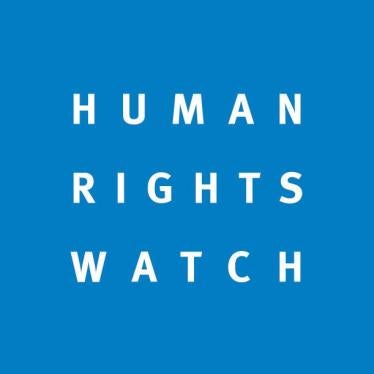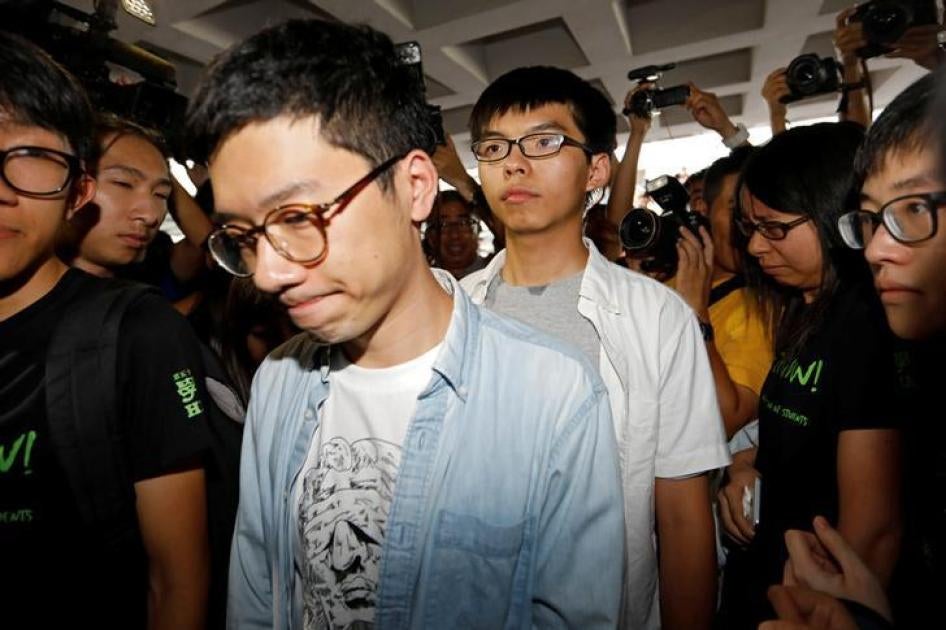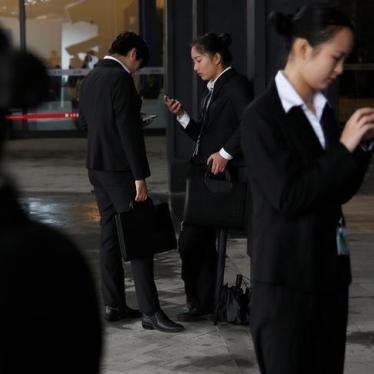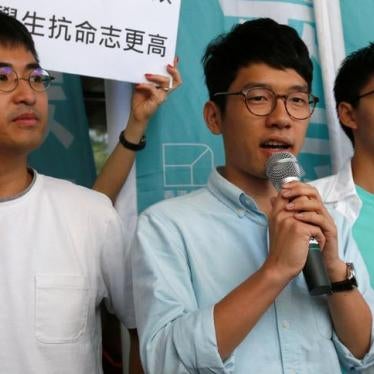As Alex Chow, Nathan Law, and Joshua Wong emerged from a Hong Kong courtroom yesterday, they were surrounded by visibly upset supporters, many of them young. The trio had just been sentenced to between six and eight months of prison for “unlawful assembly” and “incitement.”
The image of teary-eyed youth probably pleased mainland Chinese authorities, who had wanted them punished harshly. In vehemently worded essays during and after the 2014 Umbrella Movement—and in stark contrast to the protesters’ peaceful rhetoric—Chinese state media has characterized the protesters as “traitors” and “trouble-makers” who must be “thoroughly eliminated.”
In the three years since, the Beijing and Hong Kong governments have tried to break—and discipline—pro-democracy leaders in Hong Kong, particularly those involved with the Umbrella Movement. Some have been subjected to politically motivated prosecutions and official harassments. Others have been followed, intimidated, and assaulted by suspected mainland security police, particularly during Chinese President Xi Jinping’s visit to Hong Kong in July this year.
In face of Beijing’s relentless pressure, the Umbrella Movement trio and others in Hong Kong have adhered to peaceful political activism. They established a new political party, Demosistō, injected new ideas into the debate for Hong Kong’s fight for democracy, supported dissidents and activists in the mainland, and forged alliances with young pro-democracy leaders opposing authoritarianism across Asia.
Many Hong Kongers, accustomed to a flawed but functioning semi-democratic system, are despairing to find their justice system being used for blatant political purposes and their government increasingly mimicking the mainland administration. This government has failed to meet its international legal obligations to amend a domestic law, the Public Order Ordinance, that allows peaceful protesters like the trio to be jailed, or abide by its own functional constitution, the Basic Law, which requires moves towards genuine universal suffrage.
The government has also increasingly allowed Beijing to dictate its domestic political process, to carve out a part of Hong Kong where mainland laws will apply, and to kidnap Hong Kong residents to across the border where they are detained and forcibly disappeared. It is also the same government whose refusal to seriously discuss electoral reform with pro-democracy student leaders that prompted thousands to take to the streets in 2014.
Despite these serious setbacks, the trio—together with their fellow protesters—have helped raise political consciousness in Hong Kong, especially of young people, who are unwilling to give up their basic rights and liberties – and demand much more.
That genie is out of the bottle, and nobody can lock it up.









